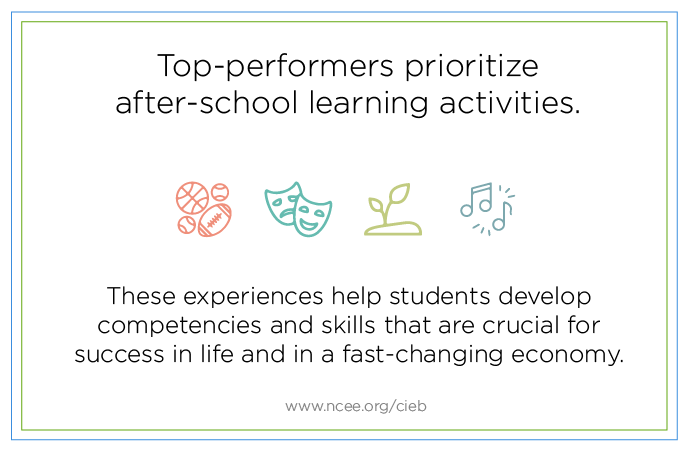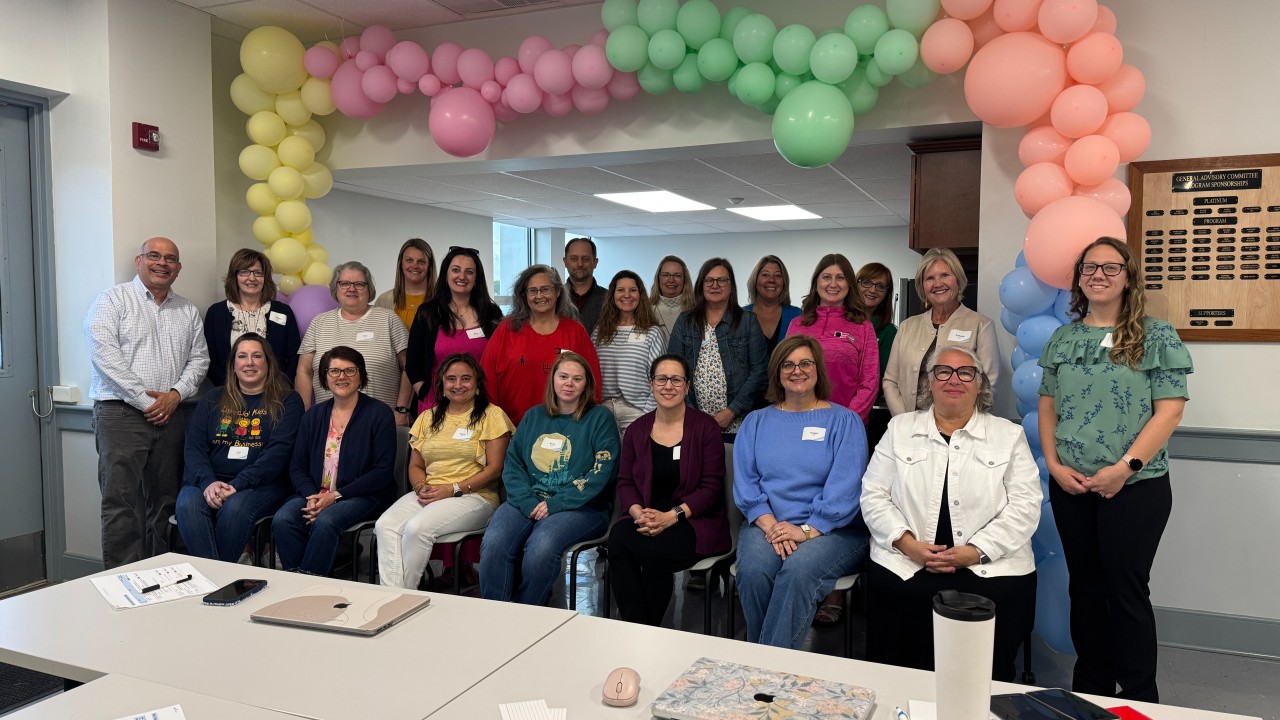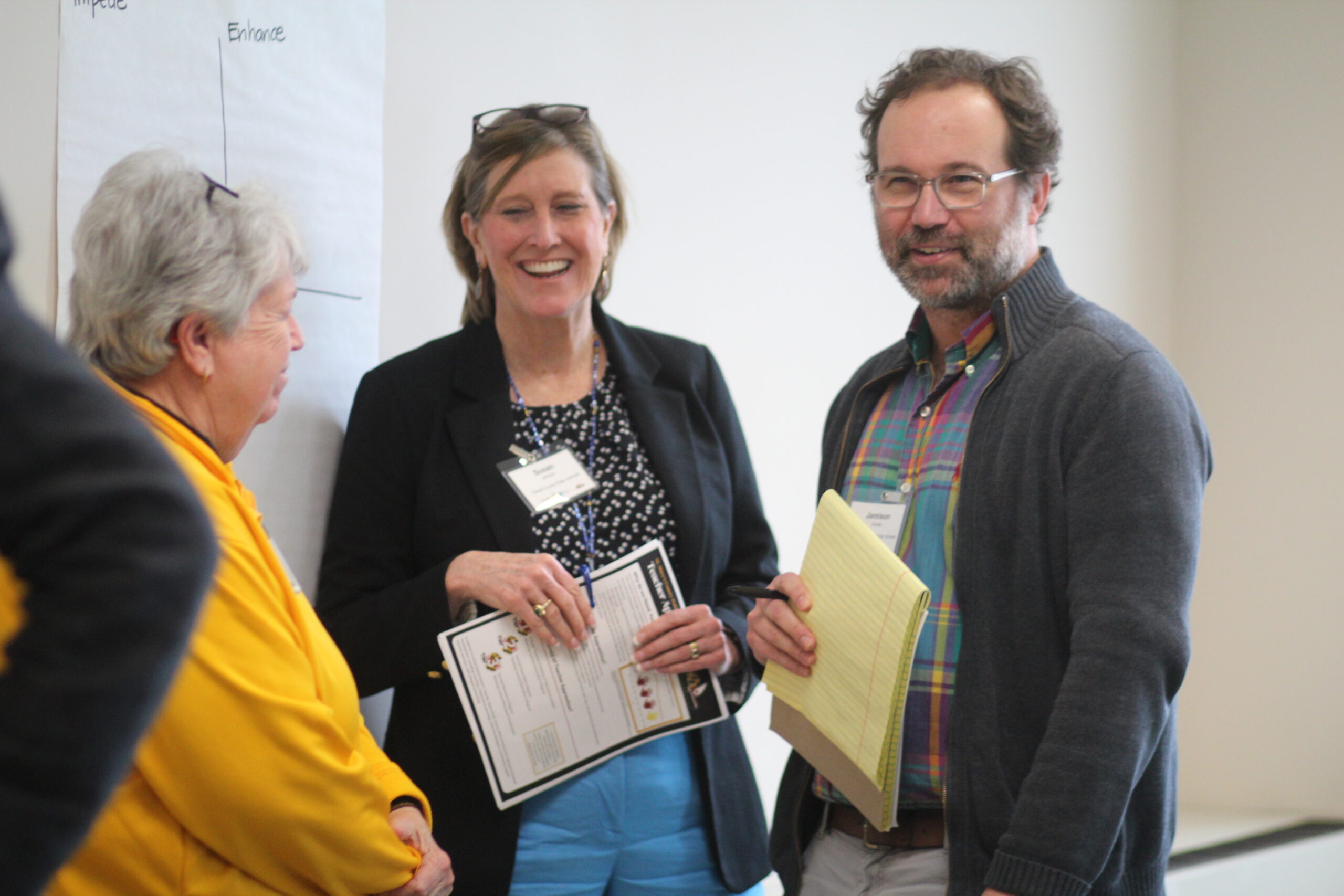
Schools play a key role in providing a broad set of learning experiences for all students both in and outside of the classroom. Learning experiences that occur outside of school often are an opportunity for students to develop the competencies and skills that are so crucial for success in life and in a fast-changing economy. Top performers ensure access to these experiences in various ways, including access to a broad range of after-school learning activities. In Singapore, all secondary school students are required to participate in “co-curricular” activities such as music, art, sports, and crafts, which are seen as key to students’ holistic development. Students are recognized for their work in these activities in the domains of participation, service, leadership, and achievement. In Finland, the majority of students participate in after-school “hobbies,” including both sports and arts. As of January 2021, these activities have been made free for all students, as these are seen to contribute to student well-being and encourage their participation in society. Estonia, where after-school “hobbies” are also a long-standing tradition, has developed a national curriculum for five areas of hobbies including sports, technology, nature, cultural activities, and music and arts. Students at the secondary level are sometimes granted school credit for participation in these elective activities. For more about how top performers structure learning for students, see CIEB’s country profiles.




